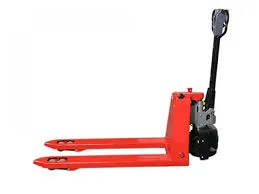


The Importance of Crane Weight Scales in the Construction Industry
In the construction industry, safety and efficiency are paramount. One of the critical elements that contribute to these factors is the accurate measurement of loads lifted by cranes. This is where crane weight scales play a vital role. These specialized instruments are designed to ensure that cranes operate within their designated weight limits, thereby preventing dangerous overload situations that could lead to accidents, equipment damage, or even fatalities.
Crane weight scales, often referred to as load cells, are devices that measure the weight of objects being lifted by a crane. They can be used in various applications, including construction sites, shipping yards, and manufacturing facilities. The information provided by these scales is essential for making informed decisions regarding the handling and transport of heavy materials.
Enhancing Safety with Accurate Weight Measurements
One of the primary benefits of crane weight scales is enhanced safety. Cranes have specific load limits dictated by their design and construction. Exceeding these limits can compromise the crane's structural integrity, leading to possible failure during operation. When cranes are overloaded, the risk of tipping over increases, posing a significant threat to operators and nearby workers. By utilizing crane weight scales, operators can accurately monitor the weight of the loads being lifted, ensuring they adhere to safety guidelines and regulations.
Furthermore, accurate weight measurements help in avoiding the costly consequences of accidents. Cranes that are overloaded can lead to severe financial liabilities due to damaged equipment, delayed projects, and potential legal repercussions. By ensuring proper weight checks through these scales, companies can protect their investments and promote a culture of safety within their operations.
Improving Operational Efficiency

Beyond safety, crane weight scales also contribute positively to operational efficiency
. With accurate weight readings, operators can make quick decisions regarding the handling and placement of materials. This efficiency can significantly reduce downtime, as workers can avoid delays associated with miscalculating load capacities or dealing with equipment malfunctions caused by improper loading.Additionally, crane weight scales facilitate better inventory management. By knowing the precise weight of materials being moved, companies can optimize their logistics and supply chain processes. This leads to better planning, resource allocation, and ultimately, higher productivity levels on the job site.
Advances in Technology
In recent years, the technology behind crane weight scales has evolved considerably. Modern load cells are often equipped with digital displays and wireless communication capabilities, allowing for real-time monitoring of weights from a distance. This advancement not only enhances convenience but also enables better data collection and analysis. Operators can track load history, which assists in planning for future projects and improving operational practices.
Moreover, integrating crane weight scales with other digital tools, such as project management software or automated systems, can streamline workflows and improve overall project efficiency. By harnessing the power of technology, construction companies can embrace a more data-driven approach, leading to better decision-making and management of resources.
Conclusion
In conclusion, crane weight scales are indispensable tools in the construction industry, providing critical support for safety and operational efficiency. By ensuring accurate load measurements, these devices play a vital role in protecting workers, preserving equipment, and enhancing productivity. As technology continues to advance, the integration of crane weight scales with digital systems will only bolster their importance in modern construction practices. Investing in high-quality crane weight scales is not just a regulatory requirement but a step towards fostering a safer, more efficient work environment.



